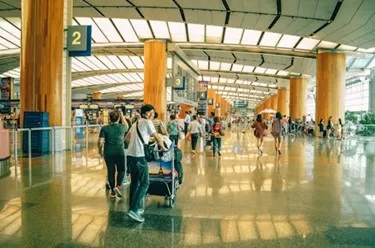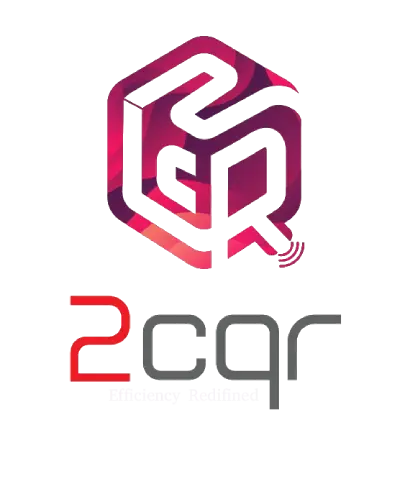Radio Frequency Identification (RFID) technology has quietly made its way into our daily lives, often in ways we don't even realize. It's making a lot of processes more simple and making everyday tasks more convenient. Here are ten innovative uses of RFID technology that are playing a vital role in our day-to-day experiences.
1. Smart Retail Shopping :
Imagine walking into a store, picking up the items you need, and simply heading to a self-checkout kiosk instead of queuing at a traditional checkout counter. RFID technology makes this possible by using RFID tags on products. At the self-checkout kiosk, an RFID reader will scan all the items in your cart simultaneously, allowing for quick and easy billing. This reduces wait times, making the shopping experience more efficient and enjoyable for customers.
2. Better Inventory Management :
Keeping track of a vast number of items can be challenging for businesses, libraries, retail stores, and manufacturing facilities. RFID technology simplifies this process by enabling real-time tracking of goods. Each item is tagged with an RFID chip that can be scanned to update stock levels instantly. This automatic tracking system reduces human error and ensures accurate stock levels. Users can quickly see which items are running low and which are overstocked, helping them manage their inventory more efficiently. This technology not only saves time but also reduces costs associated with manual inventory checks and potential stock discrepancies, ultimately helping avoid overstocking or running out of products.
One key tool in this system is the RFID handheld reader. These portable devices allow staff to walk through shelves and scan multiple items simultaneously, making inventory checks faster and more accurate. Handheld readers can also be used to locate specific items within a large inventory, further simplifying the process .
3. Contactless Payments :
RFID is at the core of many contactless payment systems, like those using NFC (Near Field Communication) technology. From tapping your card or smartphone at a checkout to using public transportation cards, RFID makes transactions quick, secure, and hassle-free. This technology has become especially important after the COVID-19 pandemic, where minimizing contact is essential.
4. Smart Homes :
In smart homes, RFID tags can be used for various purposes, such as controlling access to different rooms or automating household tasks. For instance, an RFID tag in your car can automatically open the garage door when you arrive home. Similarly, RFID-enabled devices can adjust lighting , temperature , etc based on your preferences. When you enter a room, RFID sensors detect the tag you carry, such as in a keychain or smartphone, and communicate with the smart lighting system and temperature system to adjust the lights and temperature to your preferred settings. This creates a personalized and comfortable living experience without the need for manual adjustments.
5. Pets tracking with RFID :
RFID technology is increasingly used for tracking animals. For pets, RFID microchips are implanted under the skin. This procedure is quick and typically performed by a veterinarian. Or RFID tags can be attached in collars of the pets . The microchip is about the size of a grain of rice and contains a unique identification number.
If a pet goes missing, a simple scan by a vet or animal shelter with a specialized RFID reader can retrieve the chip’s identification number, which is linked to the owner's contact information in a database. This helps reunite lost pets with their families. Similarly, in farming, RFID tags are attached to livestock or embedded in their collars to monitor their health and movements. This technology aids farmers in managing their herds more effectively, ensuring the well-being of the animals without being intrusive.
6. Healthcare Improvements :
Hospitals are using RFID to track patient information, medical equipment, and medications. Patients can be given RFID wristbands / RFID cards that store their medical history and treatment plans, ensuring they receive the correct care.
For medical equipment, RFID tags are attached to devices like infusion pumps, wheelchairs, and diagnostic machines. These tags allow healthcare staff to quickly locate equipment within a hospital or clinic. RFID readers can scan the tags to provide real-time information about the equipment’s location, which is especially valuable in emergency situations where time is critical.
In addition to equipment tracking, RFID technology also helps in verifying and managing medications. Each medication package can be tagged with an RFID chip that contains detailed information about the drug, such as its name, dosage, and expiration date. When a medication is administered, RFID readers can scan the tag to confirm that the correct medication is being given to the right patient at the right time. This process reduces the risk of medication errors, such as administering the wrong drug or incorrect dosage, by providing an additional layer of verification.
Read more on Diverse applications of RFID in the Healthcare field
7. Waste Management :
Cities can adopt RFID technology to improve their waste management systems. RFID tags are attached to waste bins, allowing waste collection companies to track how much and what type of waste is being disposed of. Each bin's RFID tag sends information to a central system, which monitors and records data about the waste collected. This data helps optimize collection routes by showing which areas generate the most waste and need more frequent pickups. As a result, waste collection can be planned more efficiently, reducing fuel consumption and lowering overall costs.
Additionally, some cities use RFID technology for "pay-as-you-throw" programs. In these systems, the amount of waste a household produces is tracked, and residents are charged based on the volume or weight of their waste. This encourages people to recycle more and reduce their overall waste production, as they see a direct link between their waste habits and their costs.
8. Travel convenience :
RFID is making travel experience more smoother. Airports use RFID tags on luggage to track bags throughout their journey, reducing the chances of lost luggage. These tags are scanned at various points during the bag's journey, from check-in to loading onto the plane, to ensure they reach the correct destination. This real-time tracking provides travelers with peace of mind and reduces the instances of misplaced luggage.
Additionally, some resorts and cruise ships use RFID wristbands for guests. These wristbands serve multiple purposes, such as allowing access to rooms, making cashless payments, and accessing various resort amenities.

9. Food Safety and Traceability :
In the food industry, RFID tags can be used for tracking products from farm to table, ensuring food safety and traceability. RFID tags attached to food items or their packaging store crucial information like source, production date, and batch number. As products move through the supply chain, RFID readers at checkpoints scan these tags to update their status and location in real time. This technology helps monitor storage conditions, such as temperature and humidity, ensuring perishable items are stored correctly to prevent spoilage. It also tracks expiration dates, helping retailers prioritize older products and quickly remove expired items from shelves.
In the event of a foodborne illness outbreak, RFID enables precise traceability, allowing companies to quickly identify and isolate the source of contamination. This rapid response helps maintain consumer trust and compliance with safety regulations.

10. Smart Parking Systems :
RFID technology greatly helps in Parking Management, making it more efficient and user-friendly. Vehicles with RFID tags, similar to the FASTag system used for toll payments in India, are detected as they enter and exit parking facilities. The system automatically scans the tag, opens the gate, and logs entry and exit times.
This eliminates the need for manual ticketing and payments. The parking fee is automatically calculated based on the duration of stay and charged to the driver’s account linked to the RFID tag.
Smart parking systems also provide real-time information on available spaces, helping drivers find spots quickly. This reduces the time spent searching for parking and minimizes traffic congestion.
Explore 2CQR’s Range od RFID Solutions for various Industries and Applications
